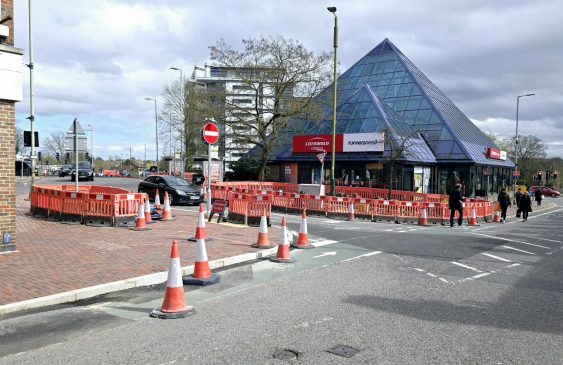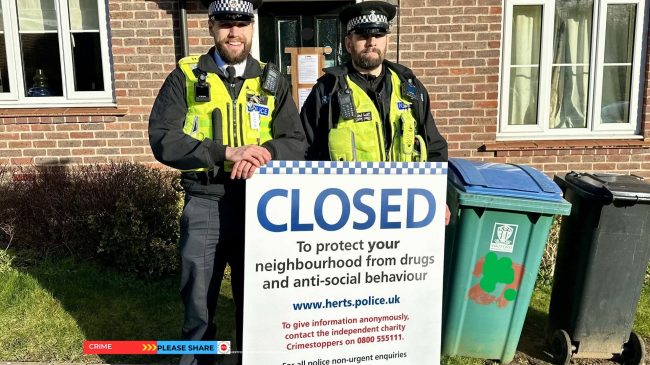Revealed: UK councils admit to poor protection for cyclists on roads
The pandemic has changed how many people view exercise, leading to an increase in home gyms, fitness subscriptions, and swapping driving into work for cycling. In light of this and the government’s cycling to work scheme, a new study reveals many towns and cities do not currently have barriers in place to protect cyclists.
- Freedom of information requests reveal 147 councils have no barriers in place to protect cyclists
- A mere 13 councils in the UK are set to spend budget on cyclist protection
Following a 500% increase in sales for cycling equipment at the start of the first national lockdown¹ and the UK government encouraging cycling as a means of eco-conscious travel, a new study from leading manufacturers of hostile vehicle mitigation systems, Heald, delves into the number of temporary and permanent barriers that are in place to protect cyclists from road collisions.
The findings are based on insight obtained by Heald through Freedom of Information requests (FOIs) sent to 360 UK councils². The new report breaks down the key findings from the council FOI responses obtained by Heald:
Out of the 360 councils contacted, 149 responded and out of these 149 councils, only Darlington Council and Brent Council currently have permanent barriers in place to protect cyclists.
Out of the 149 councils that shared information, 12% recorded cycling deaths between January 1st, 2019 and January 1st 2020. During this period, Essex County Council recorded the highest number of cycling fatalities, with eight cyclists dying in a road collision during this time.
According to a report, one fatality between these 12 months included Freddie Oborne, an 80-year-old cyclist and triathlete killed in Hatfield, Hertfordshire. A 23-year-old woman from Hertford was arrested at the scene on suspicion of causing death by dangerous driving.
Heald Managing Director, Debbie Heald MBE, says: “A staggering 99% of councils that responded to our request for information are not aware of any barriers or bollards in place to protect cyclists from road collisions. Considering the cycle to work scheme and the government’s most recent climate change pledge, which encourages cycling into work, it’s clear that the government needs to provide councils with the budget to implement the appropriate cycling measures to ensure UK residents can fulfil their eco-friendly transport efforts safely.
The new study also revealed that 149 of the councils that responded to the FOI request have no temporary barriers in place for cyclists. Following reports of cyclists’ death doubling during lockdown compared to the previous year³, these statistics reaffirm the need for councils and the government to consider implementing appropriate cycling infrastructure right across the UK.
According to the insight, only 13 councils planned to spend on measures to protect cyclists, with Nottingham City Council planning to spend the most, with a figure of £38m. This follows £2bn worth of funding from the government to improve cycling infrastructure on UK roads⁴. However, this means 91% of the councils that responded to the FOI request were not aware of any cyclist protection being implemented within their area, regardless of the government funding. With 66% of adults in England stating that the roads feel too dangerous to cycle on⁵, this highlights a clear need for cycling protection on UK roads.
Debbie Heald MBE, adds: “It’s devastating to see how the pandemic has impacted the number of cycling deaths in the UK, but with the limited barriers and bollards in place to protect cyclists from collisions, it’s sadly not a surprise. With the government encouraging cycling as a way of contributing to a greener UK, councils would benefit from the funds to implement systems to protect cyclists and vehicles from road collisions as it would encourage more people to get involved with the activity.
“Installing bollards would be the ideal solution for councils to ensure proper cyclist protection on UK roads and would mean an increase in confidence on the roads. With the staggering number of cycling-related fatalities recorded over the lockdown period, and with the government pushing the UK to travel more sustainably, councils must be allocated a budget to install the appropriate measures.
“There has been huge groundwork put in across the manufacturing and security industry to develop products which can help improve the safety of the public and it’s important that the government, councils and other authorities consider making use of these”.
To address these issues Heald recently launched two new bollards, Synergy and Apex to protect cyclists and pedestrians. Both of which are shallow mount solutions that allow for minimal to no excavation enabling high-security products to be retrofitted into the built environment with ease.










